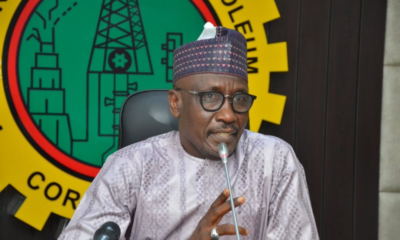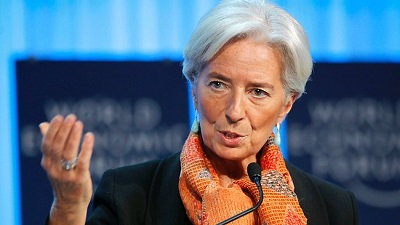Economy
Good News: IMF Offers Nigeria, Others Zero-Interest Loans Amidst Economic Recession
An international financial body has extended hands of help to Nigeria amidst the biting crisis of recession befalling the local economy.
The International Monetary Fund is prepared to lend money to Nigeria and other countries facing economic crisis at zero interest rate in order to stimulate their recovery.
The Managing Director, IMF, Christine Largade, said this on Thursday in Washington DC, United States, at the ongoing annual meetings of the World Bank/IMF.
“If we want to improve the inequality issue, we must have a strong international safety net. In this context, I am pleased to reveal that our board recently approved the extension of the zero interest rate on all concessional facilities from 2016 to 2018, and thereafter, if there is a need for an extension,” she said.
A Punch correspondent, however, gathered from top Nigerian officials attending the meetings that the country was not favourably disposed to taking the IMF offer.
An official, who spoke to a correspondent on condition of anonymity, said, “The IMF people have been talking to us for some time, asking us to come and take loans, but their facilities come with too many unfavourable conditions.
“For instance, they told us to remove fuel subsidy and devalue the naira, which we did. If we take their fresh offer, they may ask us to raise the price of fuel and further devalue the currency, but these will create unrest in the country because the people are already suffering and we are aware of this.
“We will rather take a facility from the World Bank. The IMF facility comes with too many conditions; though we need a lot of funds to come into our economy now, we have to be wary of some of the tough conditions attached to them.”
Giving further details about the facility, the IMF boss said, “That is really important for low-income countries to be able to actually absorb the shocks without necessarily going to the international markets or relying on bilateral lending capacity of close to $1tn by extending access to bilateral borrowing agreements. The new agreements that are being signed this week will run at least through the end of 2019, and will continue to serve as a third line of defence.
“As you know, the first line of defence is quota; the second line is a new arrangement to borrow; and the third line of defence will be those bilateral loans.
“We have so far received pledges of $344bn from 26 members. We look forward to others joining the effort. We will provide more details shortly; and there will be some signing sessions organised in the course of the next two days.”
Lagarde also said that the outlook for advanced economies remained subdued, while that for the developing economies provided some guarded optimism with great diversities within the various economies.
Follow us on social media:-

 Lifestyle2 days ago
Lifestyle2 days agoWoman goes to hospital for stomach pain, returns with a baby
-

 Lifestyle14 hours ago
Lifestyle14 hours agoUniversity students carry stove, pots, cartons, buckets, and others to school on ‘No bag day’ (Video)
-

 Celebrity Gossip & Gist12 hours ago
Celebrity Gossip & Gist12 hours ago“Speed Darlington denied bail by the police” – Lawyer Deji Adeyanju gives update, VeryDarkMan reacts (Video)
-

 News14 hours ago
News14 hours agoPort Harcourt Refinery products are exclusively for NNPCL retail outlets







